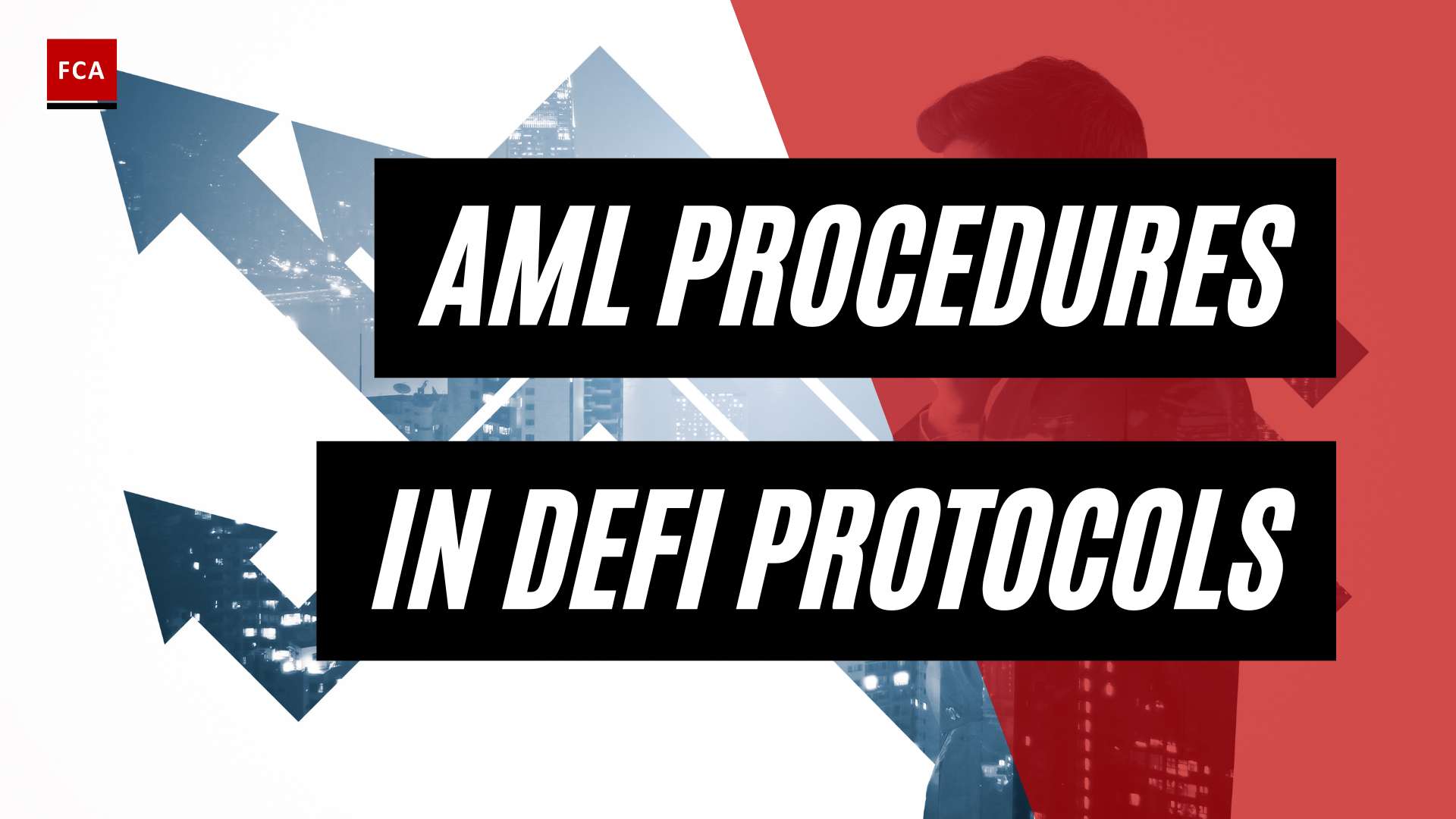Cloud Computing in AML Compliance
Cloud computing has emerged as a transformative technology in the field of Anti-Money Laundering (AML) compliance. By leveraging cloud-based solutions, financial institutions can enhance their compliance efforts and realize numerous benefits. In this section, we will introduce the concept of cloud computing and explore its benefits in the context of AML compliance.
Introduction to Cloud Computing
Cloud computing refers to the delivery of computing services, including storage, processing power, and software applications, over the internet. Instead of relying on local infrastructure, organizations can utilize cloud-based resources provided by third-party vendors. Cloud computing offers several advantages, including cost efficiency, scalability, flexibility, and improved data quality.
Benefits of Cloud Computing in AML Compliance
Cloud computing provides financial institutions with numerous benefits when it comes to AML compliance. These benefits include:
-
Improved Efficiency: Cloud-based solutions enable financial institutions to streamline their AML compliance processes, reducing manual efforts and increasing operational efficiency. By automating repetitive tasks and leveraging advanced analytics, institutions can enhance their detection and investigation capabilities, leading to more effective compliance outcomes.
-
Enhanced Data Security and Privacy: Cloud service providers follow strict requirements for data privacy and security, ensuring that sensitive customer data is protected against cyber-attacks and data breaches. Financial institutions can leverage the advanced security features provided by cloud providers to enhance data privacy and protection in their AML compliance processes.
-
Cost Savings: Cloud computing offers financial institutions a cost-effective alternative to traditional on-premise infrastructure. With a pay-as-you-go pricing model, institutions can reduce upfront costs associated with deploying and maintaining large on-premise systems. This cost-efficiency allows institutions to allocate resources more effectively and invest in other areas of their AML compliance program.
-
Scalability and Flexibility: Cloud solutions provide financial institutions with enhanced scalability and flexibility. Institutions can quickly scale their AML operations up or down based on their needs, without the need for significant infrastructure investments. This scalability allows institutions to adapt to changing regulatory requirements and accommodate fluctuations in transaction volumes.
-
Improved Data Quality: Cloud-based solutions offer robust data management capabilities, allowing financial institutions to maintain high-quality data for AML compliance. Advanced data analytics and machine learning techniques can be applied to identify patterns and anomalies, enabling more accurate detection of suspicious activity and reducing false positives.
By embracing cloud computing in their AML compliance processes, financial institutions can leverage these benefits to enhance their compliance efforts. Cloud solutions enable institutions to adapt to changing regulatory requirements, reduce operational risks, and improve customer due diligence processes. The integration of cloud technology offers a promising future for AML compliance, allowing financial institutions to stay ahead in the fight against money laundering and financial crime.
Implementing Cloud Solutions in AML Compliance
When it comes to Anti-Money Laundering (AML) compliance, leveraging cloud solutions can provide significant advantages for financial institutions. Cloud computing technology offers enhanced capabilities for transaction monitoring, real-time data analysis, and scalability and flexibility in AML compliance efforts.
Enhancing Transaction Monitoring
Cloud-based AML solutions enable financial institutions to enhance their transaction monitoring capabilities. By leveraging the power of cloud computing, institutions can process and analyze vast amounts of data in real-time, reducing the time and resources required to identify potential money laundering activities (Sanction Scanner). The scalability of cloud infrastructure allows for efficient handling of large volumes of transactions, ensuring comprehensive monitoring and detection of suspicious activities.
Through cloud computing, financial institutions can leverage advanced analytics and machine learning algorithms to improve transaction monitoring accuracy and efficiency. These technologies enable the identification of complex patterns and anomalies that may indicate potential money laundering or terrorist financing activities. By continuously analyzing transaction data, cloud-based AML solutions help institutions stay ahead of evolving money laundering techniques and regulatory requirements.
Real-time Data Analysis and Pattern Recognition
Real-time data analysis is crucial for effective AML compliance, as it allows for immediate identification and response to suspicious activities. Cloud-based AML solutions provide financial institutions with faster and more efficient data analysis capabilities. By leveraging the processing power and scalability of the cloud, institutions can analyze large volumes of data in real-time, enabling prompt detection of potential money laundering activities.
Furthermore, cloud solutions offer enhanced pattern recognition capabilities, allowing institutions to identify complex relationships and connections between entities. By analyzing vast amounts of data, including transactional, customer, and external data, cloud-based AML solutions help institutions uncover hidden patterns and detect potential illicit activities. These advanced pattern recognition capabilities contribute to more accurate risk assessments and more effective identification of suspicious transactions.
Scalability and Flexibility
One of the key advantages of cloud computing in AML compliance is the scalability and flexibility it offers. Cloud-based AML solutions can seamlessly scale up or down based on the needs of the institution, accommodating fluctuating transaction volumes and data processing requirements. This flexibility allows financial institutions to adapt to changing business demands, ensuring efficient and effective AML compliance operations.
Additionally, cloud solutions enable seamless integration with existing systems and technologies, providing a unified platform for AML compliance activities. Financial institutions can leverage cloud infrastructure to consolidate data from various sources, enabling a holistic view of customer behavior and transaction patterns. This integration enhances the effectiveness of AML compliance efforts by facilitating comprehensive risk assessments and ensuring consistent monitoring across different channels.
By implementing cloud solutions in AML compliance, financial institutions can enhance transaction monitoring, conduct real-time data analysis, and achieve scalability and flexibility. Cloud-based AML solutions empower institutions to stay ahead of regulatory changes, improve compliance, and mitigate the risk of financial crimes effectively. As the AML landscape continues to evolve, leveraging cloud computing technology becomes increasingly essential for financial institutions striving to maintain robust AML compliance frameworks.
Addressing Challenges in Cloud-based AML Compliance
Implementing cloud technology in AML compliance comes with its own set of challenges that financial institutions need to address. These challenges include data security and privacy, regulatory compliance, and potential operational disruptions.
Data Security and Privacy
When transitioning to cloud-based AML solutions, financial institutions must prioritize data security and privacy. Storing sensitive customer information in the cloud requires robust security measures to protect against unauthorized access and data breaches. Cloud service providers offer advanced security features that can enhance data privacy and protection in AML compliance processes.
To ensure data security and privacy, financial institutions should adhere to established cloud security standards such as the General Data Protection Regulation (GDPR) and ISO 27001. The GDPR sets data protection standards for the European Union, while ISO 27001 is a globally-recognized information security certification framework (ComplyAdvantage). Implementing these standards helps firms protect personal data stored in the cloud and meet regulatory requirements.
Financial institutions should also implement additional security measures such as employee training, regular evaluation of security solutions, disaster recovery planning, and business continuity strategies. These measures help protect data in the cloud and mitigate the risks associated with data breaches, money laundering, cyberattacks, compliance fines, and reputational damage (ComplyAdvantage).
Regulatory Compliance
Cloud-based AML compliance solutions must adhere to regulatory requirements imposed by governments and financial authorities. Noncompliance can expose financial institutions to legal risks and reputational damage. Governments globally have introduced data protection regulations that require firms to implement robust security measures to safeguard cloud-based AML solutions from criminal threats (Deloitte).
Financial institutions must ensure that their cloud service providers comply with relevant regulations and industry standards. This includes maintaining compliance with data protection laws and implementing necessary controls to protect customer data. Regular monitoring and auditing of cloud infrastructure and security measures are essential to maintain regulatory compliance.
Potential Operational Disruptions
Transitioning to cloud-based AML compliance may introduce potential operational disruptions in financial institutions. It is crucial to carefully plan and implement the cloud migration process to minimize any negative impact on daily operations.
Financial institutions should conduct thorough testing and risk assessments before migrating to the cloud. This includes evaluating the compatibility of existing systems, ensuring seamless integration with cloud infrastructure, and addressing any potential disruptions to transaction monitoring and other AML processes.
By addressing these challenges, financial institutions can successfully leverage cloud technology for AML compliance while mitigating risks and ensuring the security, privacy, and regulatory compliance of their data. The benefits of scalability, flexibility, and advanced technologies offered by cloud-based AML solutions outweigh the challenges when implemented strategically and with proper safeguards in place.
Advanced Technologies in Cloud AML Solutions
Cloud computing technology has revolutionized the field of anti-money laundering (AML) compliance by enabling the integration of advanced technologies within AML solutions. These technologies enhance the efficiency and effectiveness of AML processes, providing financial institutions with robust tools to combat financial crime. Here are some of the advanced technologies commonly found in cloud AML solutions:
Advanced Analytics and Machine Learning
Cloud solutions offer advanced analytics and machine learning capabilities that empower financial institutions to detect and prevent money laundering activities more effectively. By analyzing vast amounts of data in real-time, these technologies can identify complex patterns and anomalies that may indicate suspicious activity.
Through machine learning algorithms, cloud AML solutions can continuously improve their detection capabilities by learning from historical data and adapting to emerging trends. This enables more accurate identification of potential money laundering risks and reduces false positives, allowing compliance teams to focus their efforts on genuine threats.
The partnership between Oracle and NICE Actimize is an example of how cloud-native technology stacks are integrating advanced technologies like AI and machine learning in AML solutions, enabling financial institutions to leverage these capabilities for enhanced compliance efforts (Oracle Financial Services).
Automation and Efficiency
Automation plays a crucial role in streamlining AML compliance processes. Cloud AML solutions leverage automation to handle repetitive and time-consuming tasks, such as data entry, report generation, and transaction monitoring. By automating these processes, compliance teams can focus on more complex and strategic activities, such as investigating suspicious transactions and developing risk mitigation strategies.
Automation also improves the efficiency of AML processes by reducing manual errors and increasing the speed of analysis. With cloud-based automation, financial institutions can achieve greater operational efficiency, ensuring compliance with AML regulations while optimizing resource allocation.
Collaboration and Integration
Cloud AML solutions facilitate collaboration and integration by providing a unified platform for multiple stakeholders involved in AML compliance. This includes compliance officers, risk managers, investigators, and regulators. Cloud platforms enable seamless communication and data sharing, allowing teams to work together efficiently and share insights in real-time.
Integration with other systems and data sources is another advantage of cloud AML solutions. By connecting with internal and external data providers, financial institutions can enhance their AML capabilities by accessing a broader range of information. This integration enables comprehensive risk assessments, enhanced due diligence, and better decision-making in AML compliance processes.
By leveraging advanced analytics, automation, and collaboration capabilities, cloud AML solutions empower financial institutions to strengthen their AML compliance efforts. These technologies enable more effective detection and prevention of money laundering activities, improving the overall integrity and security of the financial system. As cloud computing continues to evolve, the integration of advanced technologies will play a pivotal role in shaping the future of AML compliance.
The Future of Cloud Computing in AML Compliance
As technology continues to advance, the future of cloud computing in AML compliance looks promising. Financial institutions are increasingly recognizing the benefits of utilizing cloud technology to enhance their anti-money laundering efforts. In this section, we will explore the increasing adoption of cloud computing in financial institutions, emerging trends and innovations, and how cloud technology can help overcome AML compliance challenges.
Increasing Adoption in Financial Institutions
According to a recent survey, approximately 30% of financial institutions are currently using cloud technology for AML compliance, and this number is expected to more than double in the next four years (Oracle Financial Services). This significant increase in cloud adoption indicates that financial institutions are recognizing the value and potential of cloud computing in enhancing their AML compliance efforts.
Cloud computing offers several advantages over traditional on-premises solutions. Financial institutions can leverage cloud-based AML solutions for real-time monitoring, seamless integration with existing systems, and enhanced customer due diligence (NorthRow). By leveraging the power of the cloud, financial institutions can improve their transaction monitoring capabilities, conduct risk-based due diligence, and establish an effective AML compliance framework that can adapt to changing regulatory requirements and mitigate financial crime risks effectively.
Emerging Trends and Innovations
The field of cloud computing in AML compliance is constantly evolving, with emerging trends and innovations driving its progress. One such trend is the integration of advanced analytics and machine learning algorithms into cloud-based AML solutions. These technologies enable financial institutions to analyze vast amounts of data and detect suspicious activities more effectively and efficiently. By leveraging cloud-based AML data analytics, financial institutions can enhance their AML efforts, reduce costs, and improve operational efficiency (Sanction Scanner).
Automation is another key innovation in cloud-based AML solutions. By automating manual processes, financial institutions can streamline their compliance efforts and improve efficiency. Automation can help with tasks such as customer due diligence, transaction monitoring, and suspicious activity reporting. This not only saves time and resources but also reduces the risk of human error in the compliance process.
Overcoming AML Compliance Challenges with Cloud Technology
Cloud computing technology has emerged as a potential solution to address the challenges faced by traditional AML approaches. One of the significant challenges in AML compliance is data security and privacy. Financial institutions must ensure that sensitive customer data is protected while still leveraging the benefits of cloud computing. Cloud service providers offer robust security measures, such as data encryption and access controls, to safeguard sensitive information (NorthRow).
Regulatory compliance is another critical challenge in AML. Financial institutions must adhere to various regulatory requirements, and cloud computing can help facilitate compliance by providing scalable and flexible solutions that can adapt to changing regulatory landscapes. Cloud-based AML solutions enable financial institutions to stay ahead of regulatory changes and meet their compliance obligations effectively.
Cloud technology also addresses potential operational disruptions by providing scalable infrastructure and flexibility. Financial institutions can easily scale their AML compliance systems based on their needs, without the constraints of on-premises infrastructure. This scalability ensures that financial institutions can handle increased transaction volumes and accommodate growth while maintaining the effectiveness of their AML compliance efforts.
In summary, the future of cloud computing in AML compliance is promising. The increasing adoption of cloud technology in financial institutions, along with emerging trends and innovations, highlights the potential of cloud computing to enhance AML efforts. By leveraging advanced analytics, automation, and the scalability of cloud infrastructure, financial institutions can overcome AML compliance challenges and continue to mitigate the risks associated with financial crimes.








